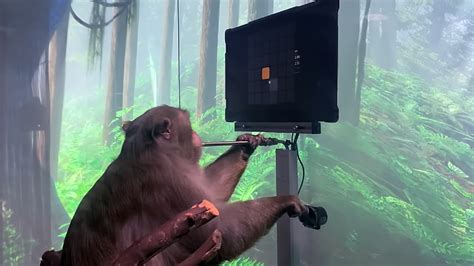The 3-minute video by Neural Link shows Pager, a male macaque with chips embedded on each side of its brain, playing ‘Mind Pong’.
Although he was trained to move a joystick, it is now unplugged. He controls the paddle simply by thinking about moving his hand up or down.
“First @Neuralink product will enable someone with paralysis to use a smartphone with their mind faster than someone using thumbs,” Elon Musk tweeted.

Stating further he said that Later versions will be able to shunt signals from Neuralinks in brain to Neuralinks in body motor/sensory neuron clusters.
Must Read: Breaking: You Can Now Buy a Tesla with Bitcoin
Thus enabling, for example, paraplegics to walk again. The device is implanted flush with skull & charges wirelessly, so you look & feel totally normal.
Neuralink works by recording and decoding electrical signals from the brain using more than 2,000 electrodes implanted in regions of the monkey’s motor cortex that coordinate hand and arm movements, the video’s voiceover said.
“Using these data, we calibrate the decoder by mathematically modeling the relationship between patterns of neural activity and the different joystick movements they produce.”
Must Read: Stripe Becomes Silicon Valleys Most Valuable Private Company
San Francisco-based Neuralink aims to implant wireless brain computer chips to help cure neurological conditions like Alzheimer’s, dementia and spinal cord injuries and fuse humankind with artificial intelligence.
In August 2020, Musk unveiled a pig with a Neuralink chip implant, describing it as “a Fitbit in your skull.”
Neuralink Corporation is a company founded by Elon Musk and others,the specialize in developing implantable Brain machine Interfaces (BMIs). The company’s headquarters is in San Francisco, was started in 2016 and was first publicly reported in March 2017.
Must Read: 10 Things You Didn’t Know About Twitter’s Jack Dorsey
In 2017, the company reported that they were aiming to make devices to treat serious brain diseases in the short-term, with the eventual goal of human enhancement.
Musk said his interest in the idea partly stemmed from the science fiction concept of “neural lace” in the fictional universe in The Culture, a series of 10 novels.



